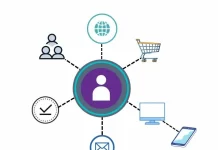One of the many unfortunate results of the Covid-19 pandemic is that millions of business owners and employees learned what to do if a business temporarily closed. While many were able to start back up, unfortunately, too many were not. As an entrepreneur and employer, you need to know what steps you need to take to deal with a temporary closure properly. If you are not prepared, then chances are the end result will be financially damaging and a headache.
Having to shut down your business is stressful enough, so don’t make it harder on yourself by not understanding what responsibilities you have. If you don’t take the correct steps, then you could find yourself paying penalties and paying out extra costs that could have been avoided. Here’s how to handle a temporary business closure.
Your first responsibility should be towards your staff. They are the lifeblood of your business, and they are the ones who will most be affected, other than yourself. You need to be very open and honest with them and give them a lot of notice. They will need to file for unemployment programs and COBRA benefits to continue having money coming in a while your doors are closed. Make sure you tell them exactly why you are closing down and how long you expect it to be. Even when the doors are closed, get contact info and send out updates. When you open again, you may lose some of them, but if you are honest and forthright and keep them in the loop, you have more of a chance to retain some and have a smoother reopening than if you have to train new hires.
Let Your Clients Know
Aside from losing your staff, you don’t want to lose too many customers when you open back up again, either. Be honest with them when you close your doors. While you don’t have to give them details, let them all know that you can’t wait to get back and you appreciate their business. While you are closed, send out emails with updates so your clients can anticipate the doors being opened again. If you have built great relationships, customers will be there for you when you return.
Talk to Vendors and Partners
Your vendors, suppliers, and partners are just as invested in your company as you are. Therefore, they need to know what is going on and how it might affect them. Your vendors, for example, can expect a hit to their own sales since you won’t be purchasing from them for the time being. Likewise, investors will not be getting a cut of your profits since you won’t be bringing any in. As always, be grateful for their support and let them know you will be doing business with them again when you are back to business.
Contact Your Insurance Provider
Shutting down a business is hard, but you can make it a little easier if you have the coverage. Business interruption insurance helps you when you have to close temporarily. For example, instead of laying off your employees, you can keep paying them through the shutdown so that you can hit the ground running when you are back. Coverage will also protect you against relocation costs and lost income. Of course, you still need to pay the bills when you temporarily close, and the right insurance will help you do that, as well. Having insurance in place is actually the first step to proper temporary closure management, so if you don’t have it already, you must contact your insurance provider.
Talk to Your Bank
Before you close your business, make sure to talk to your financial advisor or to a banking representative to discuss your options. You are very likely to have cash flow problems during the shutdown, and they should be able to help with that. For example, you may be able to get a business loan or line of credit to get through any tight financial crunches. Some banks may also allow you to avoid making payments until you open again. Your financial advisor or CPA may also provide guidance on costs you can cut during a shutdown so you can save money to ease the burden.
Give Your Employees All the Information They Need
Ensure all your employees have the information they need regarding unemployment and the Consolidated Omnibus Budget Reconciliation Act (COBRA). Workers can get unemployment benefits to help with their costs if they are unemployed for reasons other than their own choice or fault. In addition, COBRA provides health insurance coverage for newly unemployed workers and their families if they no longer have insurance provided by the employer. By law, you must have COBRA coverage if you have more than 20 full-time employees and have a private sector insurance option. However, you can still have COBRA coverage even if you have fewer employees.
Do the Paperwork
Unfortunately, shutting down a business is a lot of work. You need to do a lot of paperwork when you are open, and it won’t stop just because you are closed. What you regularly fill out will depend on your type of business, but the forms you will need to continue submitting include W-2, W-3, 940, 941, 944, 1094-B, and 1095-B. You may be able to get an extension for some forms, including your taxes, but it’s always best just to stay on top of things so that you don’t have headaches down the road.
Keep Good Records
Make sure to track everything that is going on with your business while you are closed. Track which employees you had to lay off, which ones you are keeping on, and which ones are working reduced hours, for example. If you want to get loans or benefit from government grants, they will need to see your financial and staffing records to back up any claims you might make.
As a business owner, you already have a lot of responsibilities. If you need to shut down temporarily, you will have many more. However, taking the proper steps and doing it correctly will make reopening much smoother and easy to manage.









